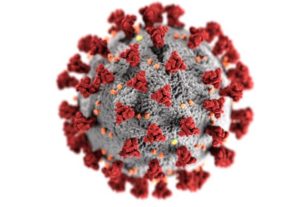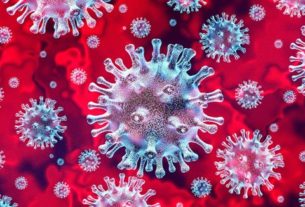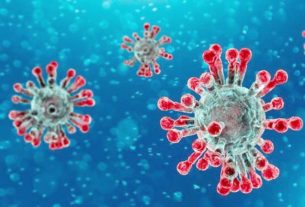From Our Bureau
30TH JUNE 2020
The Corona Virus (COVID-19) pandemic situation remained grim globally, with the confirmed cases across the world soaring to 1,01,85,374 and the death toll reaching 5,03,862 in the 216 affected countries and territories, according to the latest update from the World Health Organization (WHO).
Globally, American region continued to be the worst-hit with 51,36,705 confirmed cases and 2,47,129 deaths. Europe came next with 26,92,086 confirmed cases and 1,97,254 deaths. Eastern Mediterranean region reported 10,58,055 confirmed cases and 24,423 deaths.
South-East Asia region’s tally stood at 7,84,931 confirmed cases and 21,593 deaths. Western Pacific region recorded 2,15,566 confirmed cases and 7,440 deaths and African region registered 2,97,290 confirmed cases and 6,010 deaths. WHO Risk Assessment at global level remained very high.
Yemen is the world’s worst humanitarian emergency and the already vulnerable people of Yemen are facing the added threat of COVID-19. This new burden on medical facilities could result in a catastrophic death toll. WHO and the King Salman Humanitarian Aid and Relief Centre have joined forces to ensure access to healthcare for the vulnerable in remote areas through the provision of a minimum service package.
UNICEF and WHO have supported a national immunization campaign in Syria amid the COVID19 pandemic. There has been about a 5 percent reduction in vaccination coverage in the first half of 2020, mainly as a result of challenges caused by the COVID-19 pandemic. During the 5-day immunization campaign, implemented by the Syrian Ministry of Health, health workers checked the vaccination status of more than 9,00,000 children and vaccinated more than 2,10,100 children.
To promote community empowerment and trust, a ‘Global Risk Communication and Community Engagement Collective Service’ has been launched by WHO, UNICEF and IFRC with support from the Global Outbreak and Response Network and the Bill and Melinda Gates Foundation.
Subject in Focus:
A partnership for a global risk communication and community engagement collective service to beat COVID-19
Effective risk communication and community engagement (RCCE) is critical for the successful implementation of almost any emergency programming – its importance is even more significant during public health emergencies, such as the COVID-19 pandemic.
COVID-19 is now a global health crisis, an information crisis and increasingly a wider socio-economic crisis. As such, the unprecedented impacts on society require the broadest range of humanitarian and public health partners working together.
Given the breadth and range of societal impacts the virus is now causing, consistent and open engagement with the broadest range of communities is also paramount for maintaining trust, public solidarity and promoting local action.
As learned from experience, for example, during the West Africa Ebola outbreak (2013-2016), when community empowerment and partnership is not placed at the centre of an epidemic response, the resulting loss of trust in these efforts can have devastating public health and broader impacts.
To promote community empowerment and trust through the entire course of the COVID-19 response and further strengthen RCCE coordination at all levels, a Global Risk Communication and Community Engagement Collective Service has been launched by WHO, UNICEF and the International Federation of Red Cross and Red Crescent (IFRC), with support from the Global Outbreak Alert and Response Network (GOARN) and the Bill and Melinda Gates Foundation.
As part of a phased approach, two service hubs will be established in the African region with dedicated human resources first deployed in Senegal and Kenya. To promote better global coordination, a team will also be established in Geneva.
The service will not replace any established coordination mechanisms but is designed to reinforce ongoing global, regional and national efforts and ensure more predictable, systematic and consistent RCCE support is available to regions and countries as they tackle the pandemic.
Specifically, the Global Collective Service, on behalf of the three lead agencies supported by GOARN, will improve greater collaboration among key stakeholders at all levels, supporting the coordinated delivery of the RCCE strategy produced by WHO, UNICEF, and IFRC, as well as the COVID-19 Strategic Preparedness and Response Plan and the COVID-19 Global Humanitarian Response Plan.
The collective service will work across four strategic areas to:
1. Strengthen coordinated approaches in order to maximize the sharing of resources, information and expertise at global, regional and country levels;
2. Improve quality and shift the focus towards community engagement approaches grounded on social data, perceptions and community insights which regularly inform public health measures, inter-agency standards and monitoring frameworks;
3. Amplify the views and perspectives of communities, enabling them to influence decision-making within the response; and
4. Strengthen local capacity and existing coordination mechanisms, through RCCE mentoring support and resource sharing with local actors working in the public health, humanitarian and development sectors. (eom)



